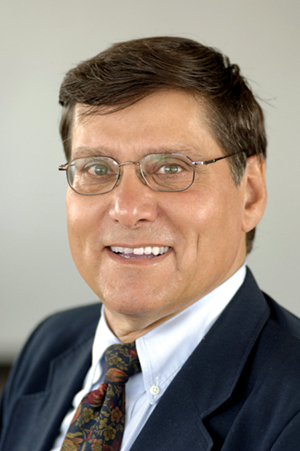Some time during the next few weeks, Prime Minister Stephen Harper and Justice Minister Rob Nicholson will appoint two new judges to the bench of the Supreme Court.

They’ll replace two judges from Ontario who are retiring: justices Ian Binnie and Louise Charron, both of whom are bilingual.
The new appointments will be important because eight of the nine judges on the bench right now are bilingual and there’s legislation before the Senate that would require that all of them understand both official languages in Canada.
New Brunswick NDP MP Yvon Godin, a proud Acadian, introduced the bill in the House of Commons. He believes that in a bilingual country like ours, all Supreme Court judges should be able to understand what people are saying in their court without having to rely on interpreters.
The legislation passed by a vote of 140 to 137 in the House on March 31, 2010, thanks to the combined support of the Liberals, New Democrats, and Bloc Québécois. It has since languished in the Senate.
The legislation has led to a language cleavage that divides the population as much as it does the legal community. At stake are the hopes of thousands of unilingual lawyers and judges who see the bill as a threat to their hopes of one day sitting on the bench of the top court.
By a strange quirk in this bilingual land, the Supreme Court is the only federal court in Canada where Canadians don’t have the right to have a judge who understands both official languages hear their case.
Many lawyers and judges have charming anecdotes about the forced dependency on interpreters. As competent as court interpreters are, it seems that lawyers have greater trust in judges to understand what’s being said. If they don’t, judges tend to not be shy about asking.
The issue isn’t so simple, however. Most Canadians aren’t aware that Canada’s statutes are written and have equal weight in both English and French.
It’s not a matter of one version being the real thing and the other just a translation. You don’t run a statute through a Google translation program and figure you’re on track.
The Criminal Code, for example, is a bilingual statute for which the English and French versions are equally authoritative. It’s up to the judges to go to the other version whenever there’s ambiguity or doubt about meaning.
When the Quebec government accuses federal authorities of “ingérence” in a constitutional matter, it can mean either “interference” or “meddling.” There’s a world of difference. Governments can end up fighting constitutional cases over such differences.
Godin’s bill has a glaring weakness in terms of meeting the requirements of a bilingual country. It specifies only that future Supreme Court judges have an “understanding” of both official languages. It doesn’t require them to be bilingual.
Noted Ottawa lawyer Richard Auger, who represented German-Canadian arms dealer Karlheinz Schreiber at the inquiry into his dealings with former prime minister Brian Mulroney, has written an informative and provocative paper that suggests replacing the requirement that judges understand both official languages with an insistence on having five bilingual judges on the nine-member Supreme Court bench.
Auger sees it as a compromise between the divergent positions on the issue.
His paper appears in the most recent edition of the Journal of the Institute of Parliamentary and Political Law.
In the paper, Auger makes certain assumptions. He writes, for example, that “any Quebec appointment is likely to be francophone.” But that hasn’t been the case in Supreme Court history.
In fact, the tradition at one time was that only two of the three Quebec appointments went to francophones.
Auger says he knows of no case where litigants could show they had suffered a miscarriage of justice because the judges couldn’t understand the interpreters. He argues his proposal addresses the flaw in Godin’s bill in that it “does not require perfect working knowledge of French and English” but merely an “understanding.”
That’s fair except for the fact that there’s no perfect working knowledge of French and English. That has yet to be discovered.
But couldn’t Godin have written his bill to follow the wording of s. 16(1) of the Official Languages Act that states that in all of the federal courts, apart from the Supreme Court, if English or French or both of those languages are chosen by the parties for the proceedings, every judge who hears the case is able to understand those languages without the assistance of an interpreter?
In Godin’s world, if Federal Court and Federal Court of Appeal judges have to be able to understand what’s being said in both official languages, why shouldn’t that be the case at the Supreme Court as well?
It’s by no means sure that Harper will appoint two bilingual judges to the bench in the next few weeks. But it’s likely he’ll at least name judges who can understand what’s being said, thereby fulfilling the requirements of our Charter of Rights and Freedoms and the Official Languages Act.
Richard Cleroux is a freelance reporter and columnist on Parliament Hill. His e-mail address is [email protected].
For related content, see
"Harper in conundrum over bilingual SCC judges."

 They’ll replace two judges from Ontario who are retiring: justices Ian Binnie and Louise Charron, both of whom are bilingual.
They’ll replace two judges from Ontario who are retiring: justices Ian Binnie and Louise Charron, both of whom are bilingual.